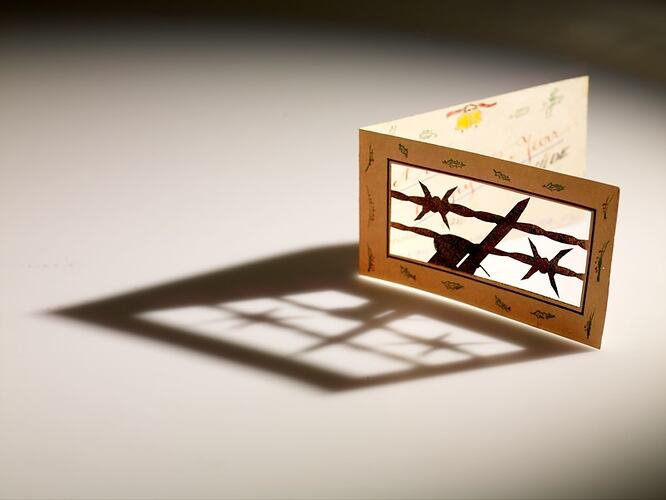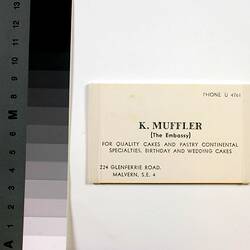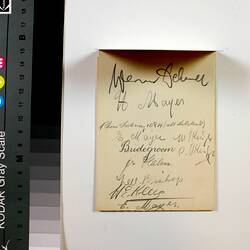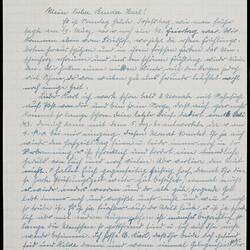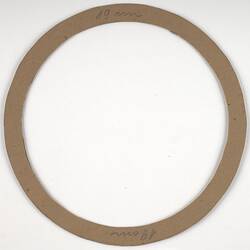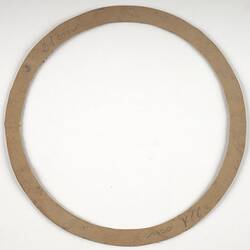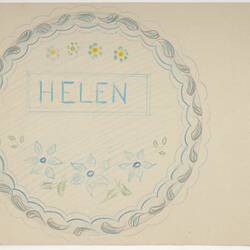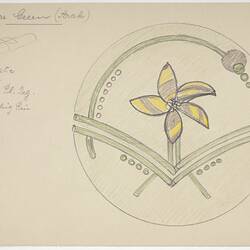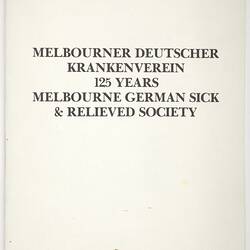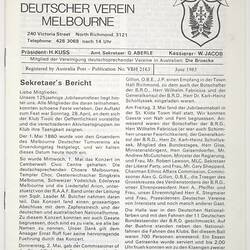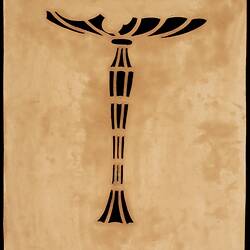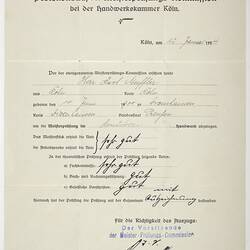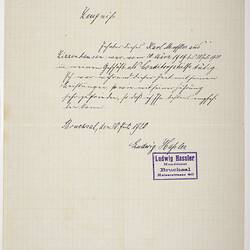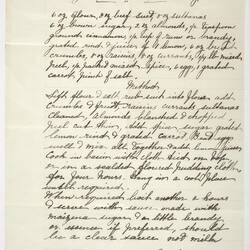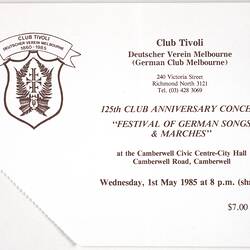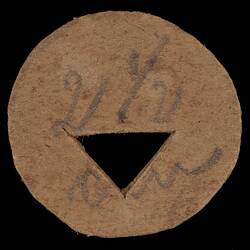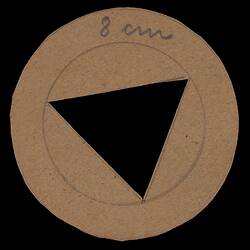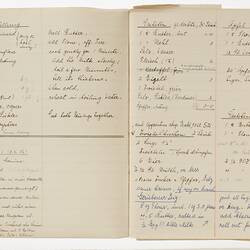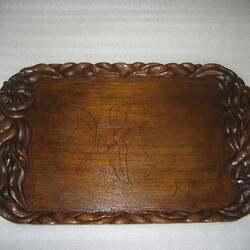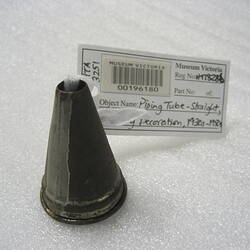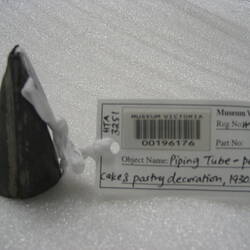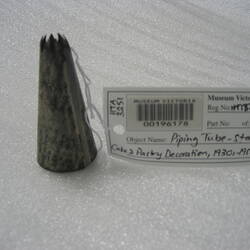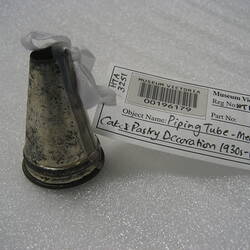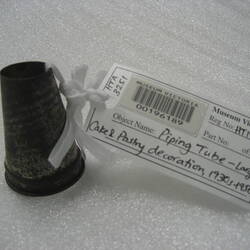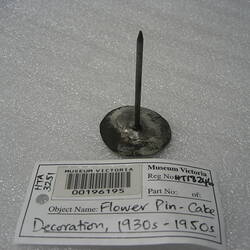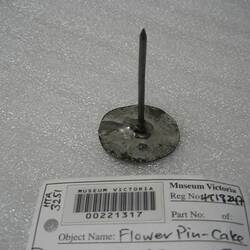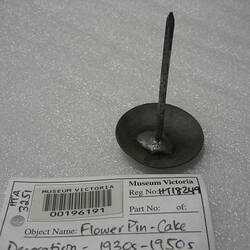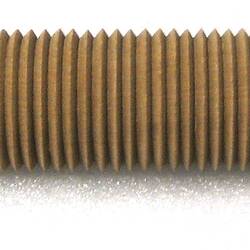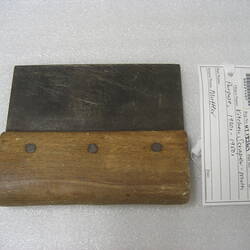Karl Friedrich Muffler, was born 14 June 1900 in south-west Germany, he qualified pastry chef and confectioner in 1917. In 1930 after meeting Bill Ikinger, an Australian citizen recruiting pastry-chefs in Germany for employment in Melbourne, he migrated to Australia aboard the passenger liner 'Balranald'. Muffler quickly established himself in Melbourne, commencing employment with Bill Ikinger at his cake shop in Brunswick, as well as joining the long-running German establishment 'Club Tivoli', which he remained involved with for 65 years. This was the dominant basis for the majority of his social activities in the early 1930s, his photographs attest to picnics, expeditions to the surrounding environs of Melbourne and other communal events. He was also keen to immerse himself in the Australian environment, with photographs featuring him in various poses in the bush or on a horse, he also documented the centenary celebrations of Melbourne in 1934, a memorial concert in the gardens for Dame Nellie Melba and the funeral of Sir John Monash.
After five years with Ikinger, Muffler went on to establish his own business, 'The Embassy' in Malvern. He was a determined and hard-working businessman who meticulously catalogued his accounts throughout his three years of his self-employment. In 1938 he returned to working with Bill Ikinger as an 'ornamentor', as his work had become too all-encompassing and he had met his future wife Mathilde 'Hilde' Mayer, who he married in March 1939. Mathilde had migrated to Australia in 1929, with her parents, and met Karl through the German Club. The couple moved into a flat in Raleigh St Windsor, and often spent Sundays in Belgrave, helping to build a house on a property owned by the 'Deutsche Arbeit Front (DAF)' or the 'German Labour Front', a nationalist group to which they were both connected through Hilde's father.
On 4 September, 1939 Karl Muffler, along with dozens of other German residents (including his father-in-law), was placed into police custody as an enemy alien. The reasons for Muffler's capture were almost certainly related to his association with DAF, which was seen as a group with definite Nazi sympathies. Karl was transferred to Tatura internment camp on 22 January 1941 (according to his file); it is unclear where he was located in those months inbetween (home detention, a work gang outside Melbourne are possibilities at this time). While at Tatura he undertook woodcarving and drafting classes and worked as a cake decorator, which apparently earned him a living, substantiated by a number of internment currency coins in the collection. Muffler's professional accomplishments were ultimately recognised with a certificate stating 'special acknowledgement of achievement in confectionary work'. He was transferred to the Victorian Civilian Alien Corps (VCAC or CAV) on 20 June 1944 and was assigned to a Forestry Commission camp in Broadford on 1944. Karl was finally released in 1945. It seems that he maintained a connection to the events of his internment, visiting the German War Memorial in Tatura every year or two for much of the remainder of his life.
The war period was also difficult for Hilde. She was forced to relocate to her parents' residence and was constrained by official restrictions of her movements, she was not allowed to travel outside of a 15 mile radius of the GPO. Eventually she secured work at the 'Table Talk' Biscuit Factory in Prahran and received a travel permit granting her permission to travel to and from home to her place of employment. She was also compelled to report once each month to the Police and dispose of her car and camera. From 1942 she was able to get travel permits to visit Karl on day trips.
After the war, Muffler returned to work for Ikinger, who now owned Paterson's in Windsor, and accepted a position at William Angliss Food Trades School teaching ex-servicemen new skills in cake decoration. He and Hilde had two daughters Jennifer (born 1946) and Susan (born 1951). The family maintained a connection to the German community though Club Tivoli although according to his daughters it was not a significant influence in their lives. Hilde and Karl, perhaps affected by the prejudices of the war, spoke English at home and made an effort not to distinguish themselves as 'foreign'. Even after his retirement in the mid 1970s, Karl continued to design cakes, even making one for his 50th wedding anniversary when he was almost 90. He died in 1996.
More Information
-
Keywords
Immigration, Cultures and histories : Melbourne and Victoria, Military History
-
Localities
Melbourne, Victoria, Australia, Germany, Tatura, Victoria, Australia
-
Authors
-
Article types
